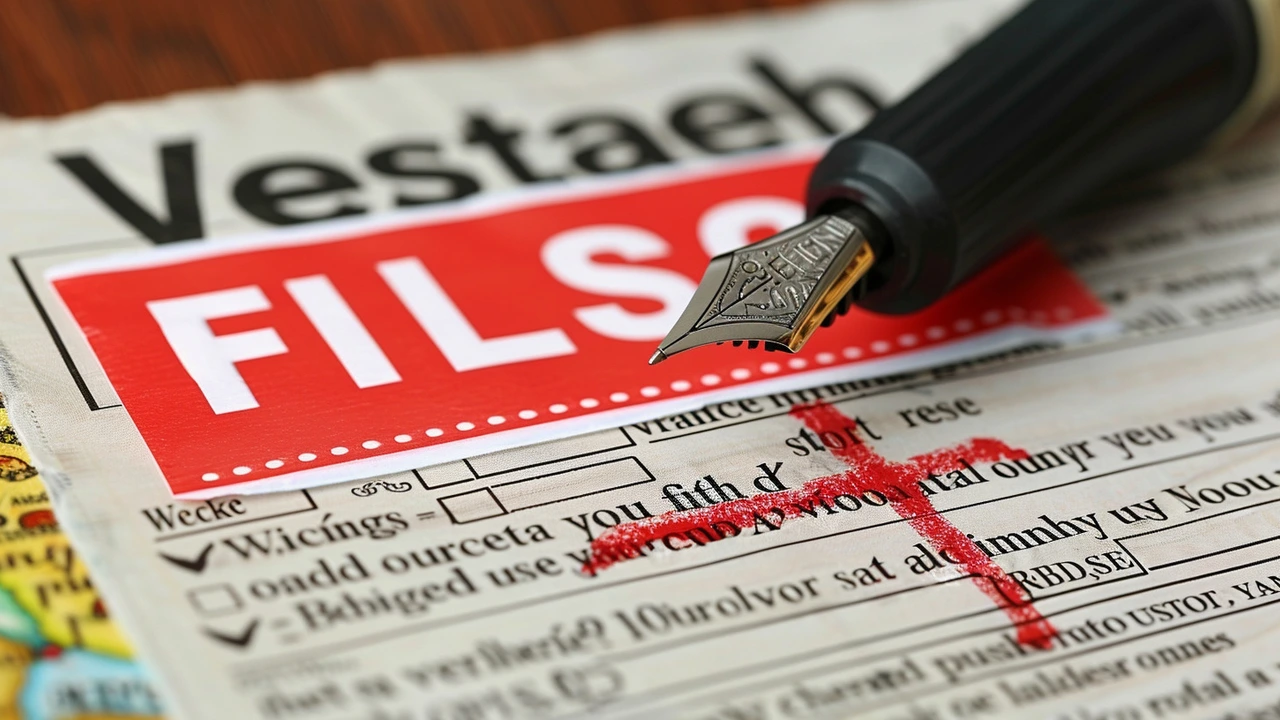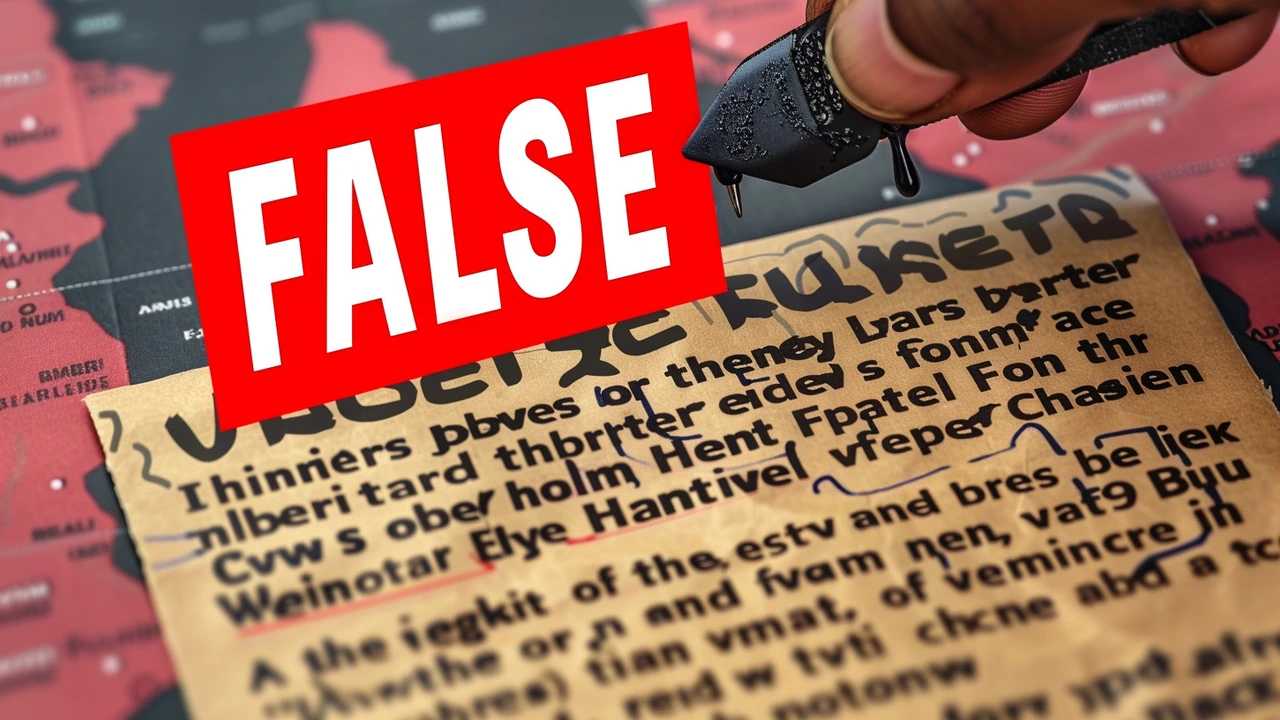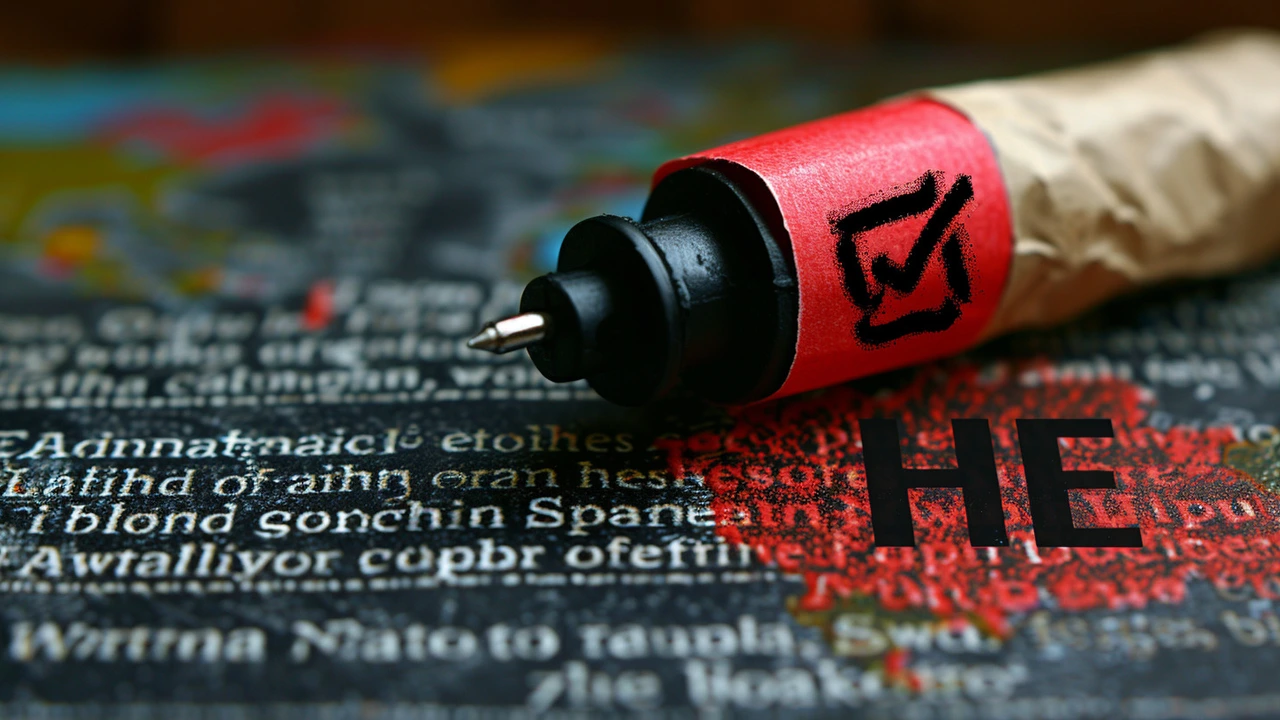
IEC Debunks Myth: Voters Do Not Need Personal Pens at Voting Stations
The Electoral Commission of South Africa (IEC) has recently issued a statement to combat a wave of misinformation spreading across various social media platforms. The disinformation campaign falsely claims that voters must bring their own black ballpoint pens to voting stations for the upcoming national and provincial elections slated for May 29. According to the myth, the ink from the pens provided by the IEC 'evaporates' within minutes, rendering the ballots susceptible to tampering. The IEC has firmly dismissed these claims, branding them as false and misleading.
In recent weeks, social media sites have been abuzz with messages warning voters of the alleged unreliability of the pens issued by the IEC. The erroneous posts suggest that the ink provided by electoral officials can evaporate quickly, making it easier for marks to be erased and ballots to be manipulated. This wave of disinformation has sown confusion and apprehension among voters gearing up for the elections. However, the IEC has come forward to set the record straight.
The IEC has assured all voters that ballpoint pens will indeed be available at every voting station. The commission reaffirmed that these pens had been subjected to stringent quality checks to ensure their reliability and permanence. Moreover, the IEC emphasized that their pens adhere to the highest standards of electoral integrity, ensuring that marks made on ballots remain secure and unalterable. Such measures are part of the larger framework of secure and transparent electoral processes that the IEC champions.
This instance of spreading disinformation underscores the challenges faced by electoral bodies worldwide in the current digital age. The rapid dissemination of false information is not only difficult to contain but also poses a threat to democratic processes. Consequently, the IEC has taken proactive steps to mitigate the impacts of such misinformation. Voters are urged not to heed the false messages and are instead encouraged to rely on official communications from the IEC. The commission also appealed to the public's sense of citizenship by asking voters to report any instances of misinformation to the authorities through https://real411.org, a portal dedicated to combating disinformation.

A Call to Vigilance Amid Disinformation
The rise of social media has undeniably revolutionized how information is shared. However, this progress comes with its set of drawbacks, prominently featuring the rapid spread of false information. In an era where the truth can easily be overshadowed by sensationalized lies, the IEC’s move to quash such myths is not just timely but critically important. The commission's spokesperson stressed that these sorts of falsehoods only serve to undermine public confidence in the electoral process, which is the cornerstone of every functioning democracy. Reports of misinformation, therefore, should be addressed promptly and responsibly.
Interestingly, the upcoming elections are set to break new ground as voters will receive three ballot papers for the first time. This significant change brings about its own set of challenges and complexities, further emphasizing the need for clear and accurate information. The IEC has been actively involved in educating the public on the new procedures to ensure a smooth, efficient, and transparent voting process. The last thing the commission wants is for disinformation to derail these efforts.
Electoral integrity is paramount, more so in a nation like South Africa, with its history and journey towards democracy. The dissemination of misinformation not only risks disenfranchising voters but also jeopardizes the very fabric of democratic participation. The IEC has been known for its stringent measures and commitment to transparency, and this episode is yet another testament to its unwavering dedication to upholding electoral integrity.

The Role of Public Cooperation
For a democracy to flourish, it requires active and informed participation from its citizens. Public cooperation is, thus, the backbone of an efficient electoral process. Misinformation campaigns thrive in environments where skepticism and mistrust are rampant. By staying informed through credible sources and reporting disinformation, citizens can play an active role in safeguarding the democratic process.
The IEC has continuously highlighted the importance of community involvement in ensuring the integrity and security of elections. This is a participatory endeavor where each voter plays a crucial role. When faced with questionable information, the best response is to verify the facts from official sources. The IEC's hotline and website serve as primary conduits for disseminating verified information regarding the elections.

Combating Technology-Driven Disinformation
Technology has made significant strides in bridging gaps, but it has also paved the way for new-age challenges like digital disinformation. Addressing these issues necessitates a multi-faceted approach combining technology, governance, and public participation. The IEC’s partnership with platforms like https://real411.org showcases its commitment to leveraging technology to counteract these modern challenges.
One of the most effective strategies is fostering a well-informed public. When voters are educated about the electoral process, they're less likely to fall prey to disinformation campaigns. Ensuring widespread access to accurate information is, therefore, a priority for electoral bodies worldwide.
As the election day approaches, the IEC's message is clear: Voters do not need to bring their own pens. Instead, they should trust the institution that has successfully managed the country’s democratic processes for years. The importance of accurate, reliable information cannot be overstated. In this age of information overload, discernment is the key. By collectively upholding the truth, South Africa can navigate the elections with integrity and confidence.
Oh, honey, let me grab my monocle and sigh dramatically - this isn’t about pens, it’s about the erosion of epistemic authority in the digital age. The IEC’s statement is a textbook case of institutional trust being weaponized by algorithmic paranoia. People don’t fear ink evaporating - they fear being lied to by systems they no longer believe in. This myth is a Rorschach test for democratic anxiety. And no, bringing your own pen won’t fix that. It’s not a supply issue, it’s a soul issue.
Let’s be real - this is a classic case of *epistemic insecurity* amplified by *information asymmetry*. The IEC’s pens are ISO 12757-2 compliant, which means they’re archival-grade, pigment-based, and UV-resistant. The ‘evaporating ink’ myth is a *cognitive distortion* rooted in *confirmation bias*. If you’re still skeptical, go read the IEC’s white paper on ballot security protocols - it’s publicly available, unlike your WhatsApp forwards.
You people are so dumb it’s embarrassing. If you believe your pen ink evaporates, you probably think your phone battery dies because it’s mad at you. Go touch grass. Or better yet - go vote. With the pen they give you. Stop being a liability.
THIS ISN’T ABOUT PENS - THIS IS ABOUT COLONIAL PSYCHOLOGY! 🇿🇦
They gave us pens in 1994 - now they say we don’t need our own? That’s the same energy as when they told us to ‘trust the system’ after apartheid. You think they’d let us bring our own ink? Nah. They want us dependent. They want us docile. This is psychological warfare wrapped in ballot paper. REAL411? Nah. We need REAL REVOLUTION. 🖋️💥
It’s fascinating how a simple logistical detail - like a pen - becomes a proxy for deeper societal fractures. We project our distrust of institutions onto inanimate objects because it’s easier than confronting the real issues: media literacy gaps, economic inequality, and the erosion of civic education. The IEC is right - the pen isn’t the problem. But the panic? That’s the symptom. And symptoms, if ignored, become diseases.
Yo, just go vote with the pen they give you - it’s free, it’s there, it works! 🙌 No need to overthink it. You’re not a lab technician, you’re a citizen. Show up. Mark your choices. Walk out proud. That’s it. No pens? No problem. Your voice is the real ink here. 💪
Huh. Interesting. I brought my pen anyway. Just in case. Didn’t hurt. Didn’t help. Just… did it. The world’s weird.
Look - I know you’re scared. I get it. But here’s the truth: the IEC has run 6 elections since 1994 without a single verified case of ballot tampering. Six! And now you’re worried about a pen? Come on. You’ve got more power than you think. Trust the system - but verify. Check the IEC site. Report lies. Show up. That’s how we win.
Let’s cut through the noise: the ‘evaporating ink’ myth is a low-effort disinformation tactic that exploits *availability heuristic* - people remember dramatic stories (ink vanishing!) more than dry facts (pens are tested). Also, fun fact: the pens are manufactured by a state-owned enterprise that’s been supplying electoral gear since 1994. They’re literally the same pens used in the 1994 election. So… yeah. You’re safe. 😎
Oh, so now we’re supposed to believe the government about pens but not about anything else? 🤔 I mean, if they can’t even keep ink from evaporating, what’s next? Will they say our votes are counted by a sentient toaster? 😂 Honestly, this is peak ‘trust the system’ theater. I’m bringing my pen. And my flashlight. And my tarot cards. Just in case.
the iec is lyingyy!!1! they use ink that fades after 5 min so they can change votes!! my cousin’s uncle’s neighbor saw a vid on tiktok where a guy put a ballot in the microwave and it turned blank!!1!1! they dont want us to bring pens becuz they cant control the color!! i brought 3 pens and a qr code scanner!! #trustnoone
IEC pens are standard ballpoint, non-smudge, permanent ink. No magic. No evaporation. Just ink. Bring one if you want. But you don’t need to. 🖋️✅
they gave us pens in 1994 but now they say we dont need them?? coincidence? i think not. the ink is coded. the pens are tracked. they know who voted for who. thats why theyre so sure. my friend’s cousin works at the printing press and he says the pens have nano-chips. they’re not trying to stop tampering - they’re trying to stop US from tampering. bring your own pen. or dont vote at all.
Use the pen. Vote. Done.